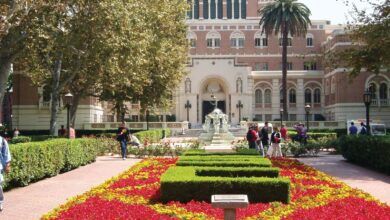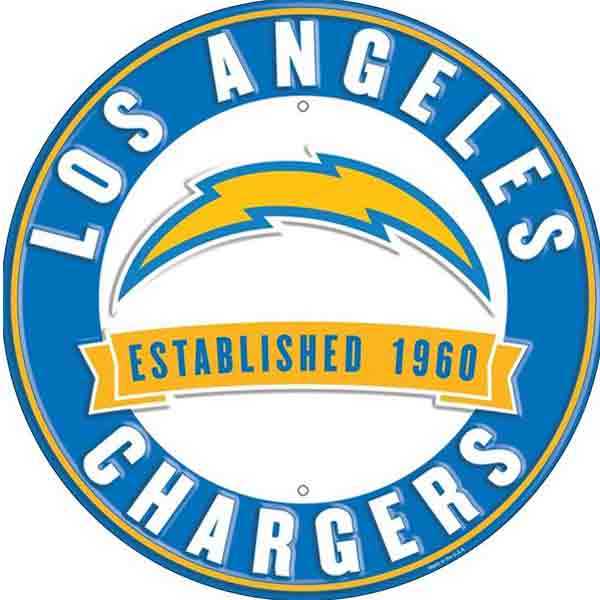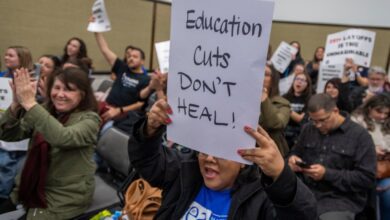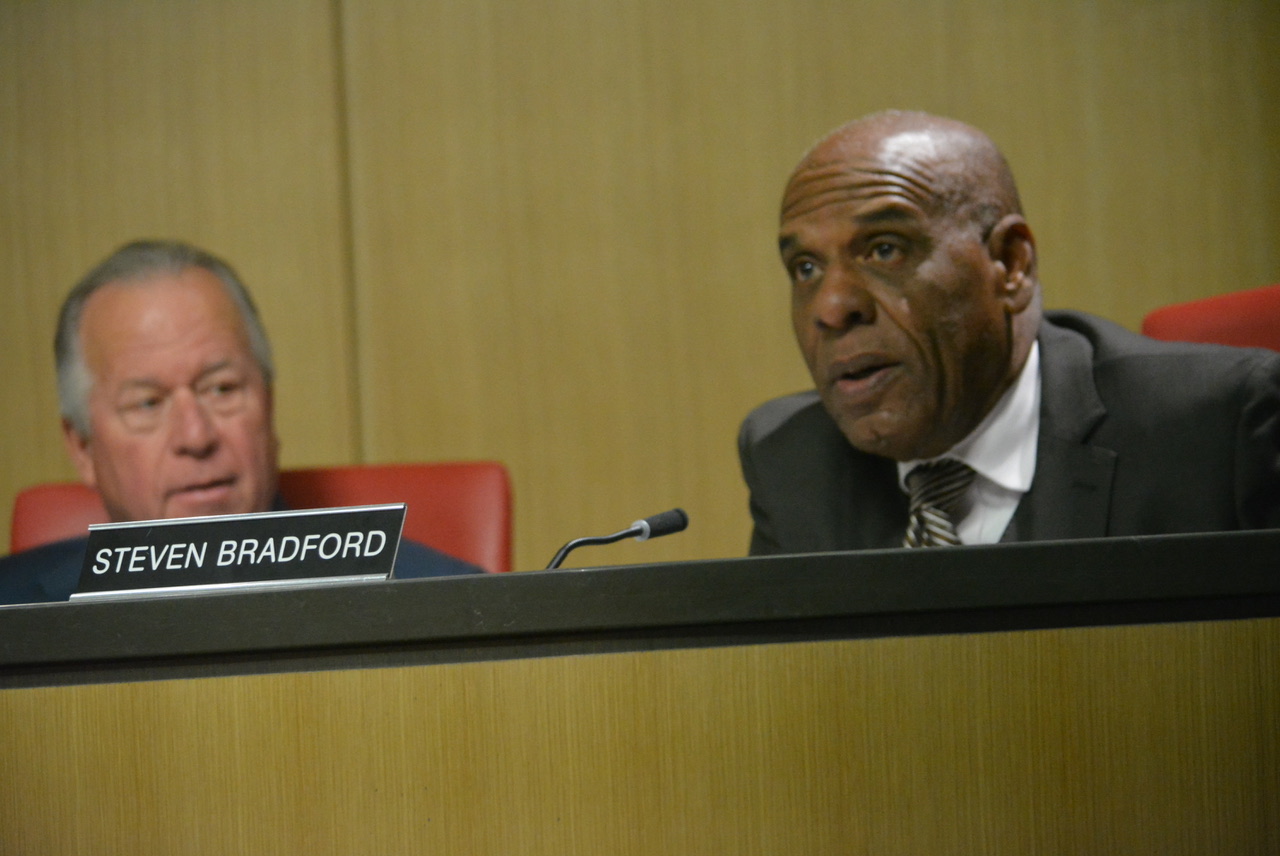
By Edward Henderson | California Black Media
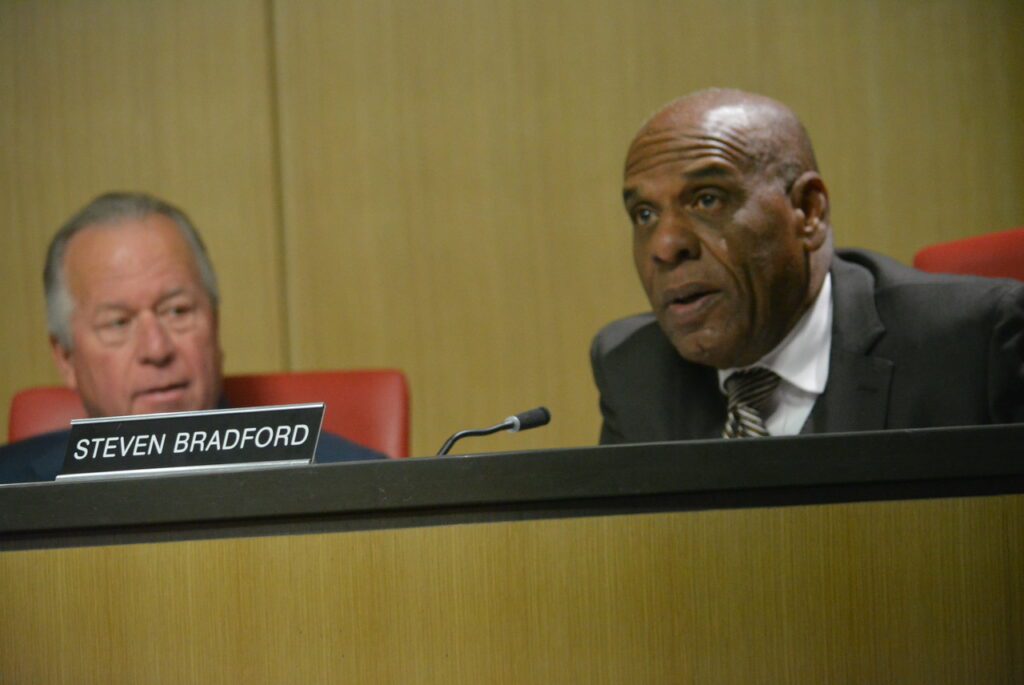
Sen. Steven Bradford (D-Inglewood)
When Sen. Steven Bradford (D-Inglewood) was sworn into the California Legislature in 2009 as an Assemblymember, he brought with him a long and faceted record of accomplishments in both the private and public sectors.
From his experiences as a Fortune 500 corporate executive at IBM and Southern California Edison to earning his chops as the first Black Gardena City Councilmember, Bradford excelled in various roles before being elected State Senator in 2016.
In the State Senate, Bradford secured millions of dollars to support projects, programs, and institutions in his district, including Compton Community College and Watts Rising, a collaborative that advocates for affordable housing. Bradford, who is termed out next year, is also a champion of workforce development and environmental initiatives.
Earlier this year, he announced that he is running for Lieutenant Governor.
Bradford, who served as Vice Chair of the California Legislative Black Caucus (CLBC) until this month, says he continues to pursue and enact policies geared toward equity and fairness.
California Black Media (CBM) spoke with Bradford recently. He reflected on his current goals, his many accomplishments, disappointments, and lessons learned over the course of the last year.
Responses have been edited for clarity and length.
Looking back at 2024, what stands out to you as your most important achievement and why?
The fact that we got substantive legislation on reparations through both houses with very little opposition, despite the fact that one of those bills was vetoed and two, were not brought up on the floor for a vote.
I still think that’s a major success. We were also able to secure $12 million in the budget, especially during a deficit year, to fund reparations initiatives. So, those things in and of themselves, were highlights – even if we did not get all the final
How did your leadership contribute to improving the lives of Black Californians?
I think my career overall has been about moving the agenda for not only African Americans, but those who’ve been most disenfranchised, not only by the State, but also by this country. I think my record speaks for itself when you look at the Ebony Alert law, the Bruce’s Beach settlement, or NIL legislation, that not only directly impacted people of color, specifically African Americans, but also helped all people with the challenges they face here. Also, a first-time low-income funding for internet and public housing – $30 million for that.
We secured $40 million for Allensworth, the historic Black-majority city, now state park, that was founded by Colonel Allensworth. The funding helped to restore that park two years ago. My record overall has been one of service and responding where is the most need.
What frustrated you the most over the last year?
The veto of my bill, SB 1050, and the fact that 1403 and 1331, two other reparations bills, didn’t even have a vote on the Assembly Floor, despite the fact that those bills made it through both houses with little or no opposition.
The fact that 1403 and 1331 didn’t see the light of day the last week of session, that was really disappointing. Especially when the entire Black Caucus supported 1403. And again, the bill had not been amended from the time it was introduced to the time it got all the way to the Assembly. So, I’m really sorry that, until the last couple of days, they chose not to bring this bill up.
What inspired you the most over the last year?
The fact that we’re resilient. You have to keep hope.
I don’t let one setback define the movement. We’re going to continue to fight, whether I’m in the legislature or not. And whether it’s a Black Caucus party or not, I think our colleagues are going to continue to do what’s right for all Californians — but also have a lane for those folks who have been most disenfranchised here in the state and across this country.
What is one lesson you learned in 2024 that will inform your decision-making next year?
Always be prepared for the double cross. I was told that almost 30 years ago by my mentor, the late Mervyn Dymally, former State Senator, former Assemblyman, Lieutenant Governor, Congressman. He says always expect the double cross because it will happen. We saw it this year. But again, you got to stay positive and soldier through. So that’s what we’re going to continue to do.
In one word, what is the biggest challenge Black Californians face?
Unity. We are, in many ways, moving forward but in a very fragmented way.
As the African proverb states, “If you want to go fast, you go by yourself. But if you want to go far, go together.”
However, we don’t have the unity that we should have.
What is the goal you want to achieve most in 2025?
To keep being a voice for positive change. Being supportive of impactful legislation that’s going to help all Californians, but especially those folks who have been most disenfranchised in this state.

